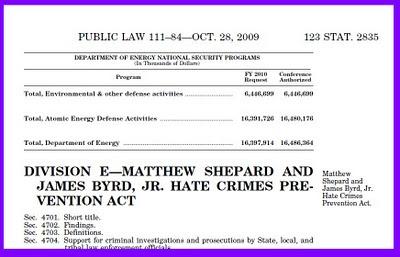
This evening I heard a news story on the car radio: the Equal Employment Opportunity Commission is considering a rule about employers using credit reports in hiring and promotion decisions. I decided to look up some more information when I got home. Here's what I did (and what you can do, too!).
First, I made it a point to remember what I could:
- The agency held a hearing (at least, I think a sound bite I heard was someone testifying).
- The National Consumer Law Center (I think) is concerned about the practice of using credit reports for employment.
- Someone in Congress is proposing (or has proposed?) legislation.
Next step: find the news story on the radio program's website. I knew it was on
KUOW, but was it on
All Things Considered (National Public Radio) or
Marketplace (American Public Media)? The
schedule indicates that Marketplace starts at 6:30, and I think I heard the story after that, so I clicked there. Sure enough, today's front page for Marketplace included a headline,
Could Credit Affect Getting Hired for a Job?Next step: see if my recollection of the story was correct and see if it links to other resources. Yes (pretty good recall) and no (no useful links).
Now what? See if the
EEOC website has anything. Yes! There was a big headline: Commission Holds Hearing on Employer Use of Credit History as a Screening Tool -- with a box to click on to "Learn More." That led me to a
page that linked to:
So what about the
National Consumer Law Center? I visited that website, clicked on the Issues tab, and saw
Credit Reports. There was a link to testimony -- but not today's, something from May:
Testimony regarding Use of Credit Information beyond Lending: Issues and Reform Proposals, May 12, 2010. That was Chi Chi Wu testifying before the House Committee on Financial Services Subcommittee on Financial Institutions and Consumer Credit -- a good lead to the Congressional action alluded to in the radio story ("Congress is considering a ban on credit checks for employees.")
Next stop:
House Financial Services Committee. With just a few clicks, I got to
a page about the May 12 hearing, with links to a webcast and the witnesses' prepared statements.
Finally, I looked for some good coverage of the issue in a legal newsletter: the
Daily Labor Report (available to UW Law School users through our
BNA web subscription). At the top of the screen, next to a big red box labeled "Latest Developments," I saw "EEOC Examines Potential Bias From Employers' Use of Credit Checks Posted: Oct 20, 2010, 4:03 PM EDT." The article summarized some of the testimony -- from both consumer advocates and industry advocates. It concluded:
[EEOC Chair Jacqueline] Berrien said EEOC plans no immediate actions based on the meeting, which she characterized as part of a series examining employment practices that potentially "unfairly screen out" applicants based on race, age, or other protected characteristics that are not job-related.
That leaves a different impression from the radio story, which said "Today, the Equal Employment Opportunity Commission looked at establishing a national policy." Maybe some sort of rule making will grow out of this, but the Chair's remark makes it clear that it'll be a while.
The
Daily Labor Report story included a note: "A full report will appear in the next issue of Daily Labor Report. Click here for the latest issue." I clicked and found
EEOC Examines Potential Bias Resulting From Employers' Use of Credit Checks -- also dated Oct. 20, but much longer. That article in turn linked to an article from three years ago, reporting on an EEOC hearing on potential bias in the use of selection tests and credit histories.
Searching the newsletter for "credit report*" turned up a lot of stories on this issue, including these recent ones:
- 09/27/2010: Privacy Rights: Schwarzenegger Vetoes Bill to Ban Employer Use of Worker Credit Reports
- 09/23/2010: Privacy Rights: House Panel Explores Discriminatory Use Of Credit Checks in Employment Decisions
- 09/01/2010: Privacy Rights: Bill to Limit Employer Use of Credit Data Clears California Assembly; Veto Possible
- 07/09/2010: Incipient Legislative Trend Toward ‘Credit Privacy' Compels Restraint in the Use of Credit Checks for Employment Purposes
There's a lot going on here!
Starting with an interesting but short news item, I was able to find testimony before the EEOC, testimony before a congressional subcommittee, and newsletter articles on the issue. You can use techniques like this to deepen your understanding of many news stories.
 Veterans Day, November 11, honors the men and women who served in the United States Armed Forces. Several area events commemorate the day:
Veterans Day, November 11, honors the men and women who served in the United States Armed Forces. Several area events commemorate the day:















